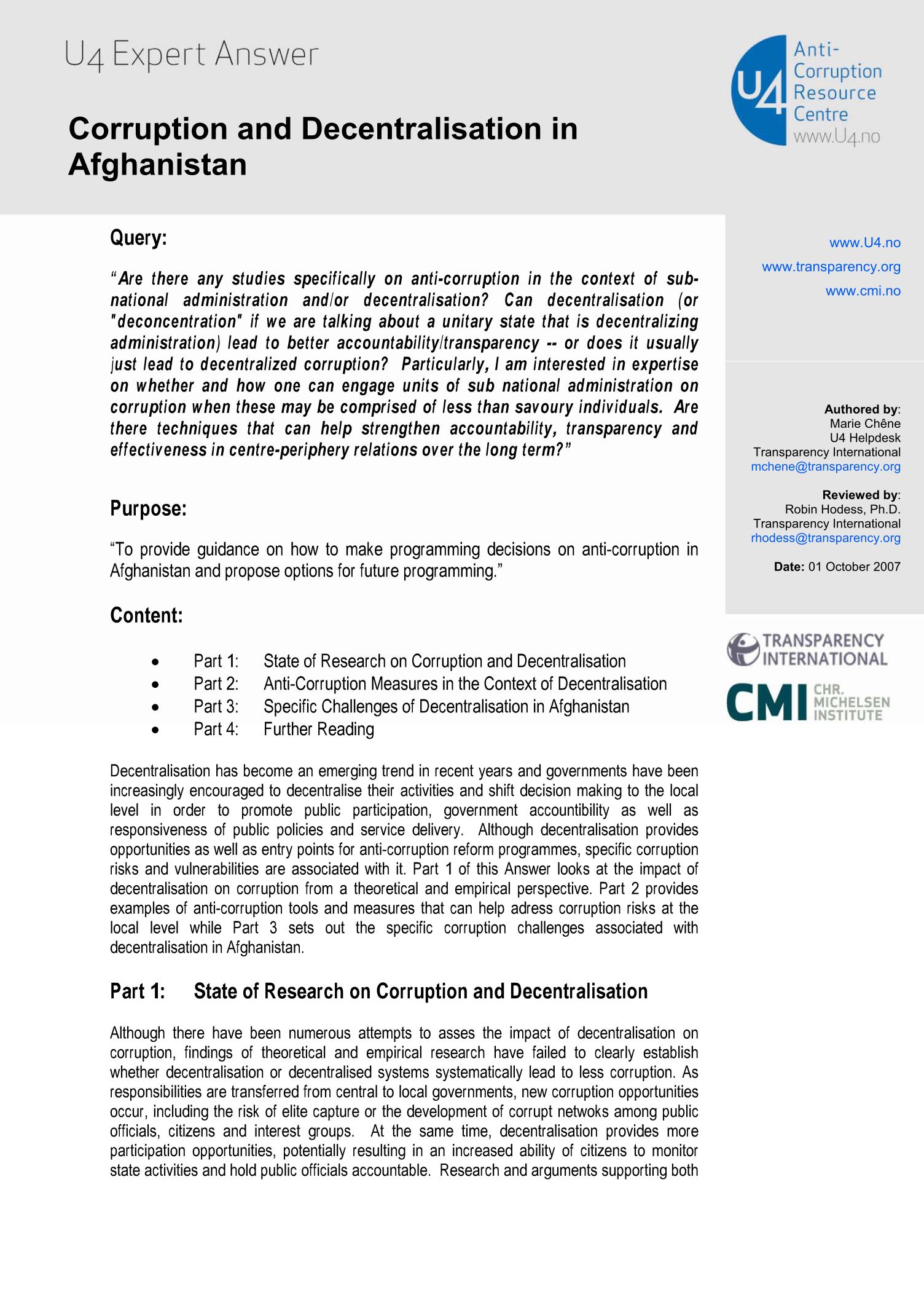U4 Helpdesk Answer
Corruption and decentralisation in Afghanistan
Decentralisation in Afghanistan faces considerable challenges of efficiency, responsiveness and accountability given the current legal and institutional context and overall lack of resources and capacity. Findings from theoretical and empirical research do not conclusively establish that decentralisation systematically leads to less corruption. Decentralisation brings government closer to the people and provides increased participation opportunities, making the public sector more responsive and accountable to the citizens. However, decentralisation also generates a new set of corruption risks such as risks of state capture by the local elite and the lack of fiscal discipline and financial management due to weak capacity and insufficient resources at the local level. Anti-corruption tools that may address these risks include strengthening the legal framework against corruption while reinforcing voice and participation mechanisms.

Cite this publication
Chêne, M. (2007) Corruption and decentralisation in Afghanistan. Bergen: U4 Anti-Corruption Resource Centre, Chr. Michelsen Institute (U4 Helpdesk Answer Helpdesk 2007)
Disclaimer
All views in this text are the author(s)’, and may differ from the U4 partner agencies’ policies.
This work is licenced under a Creative Commons Attribution-NonCommercial-NoDerivatives 4.0 International licence (CC BY-NC-ND 4.0)